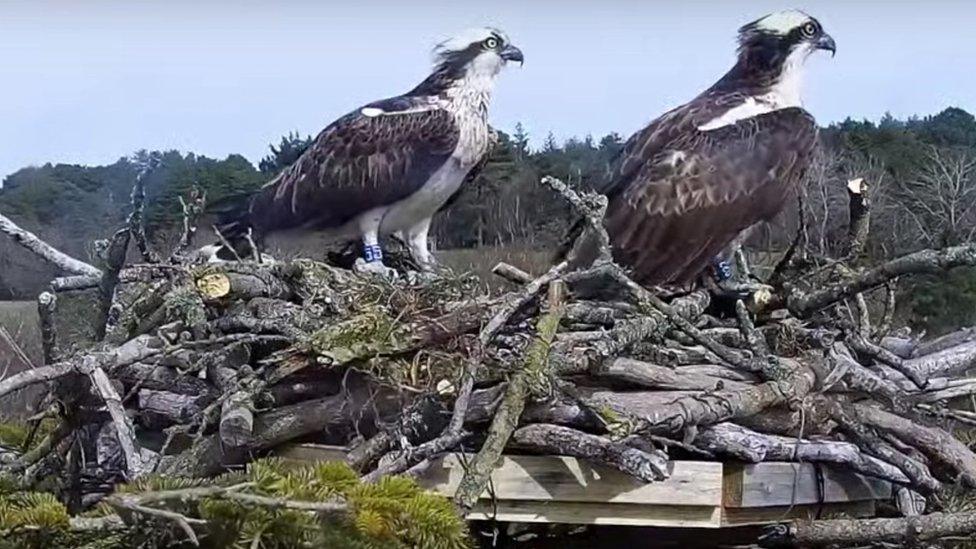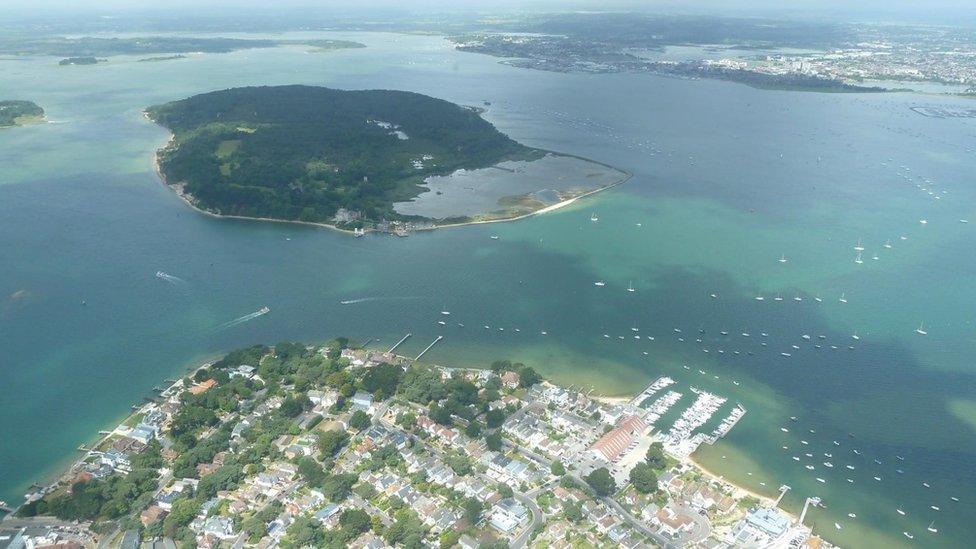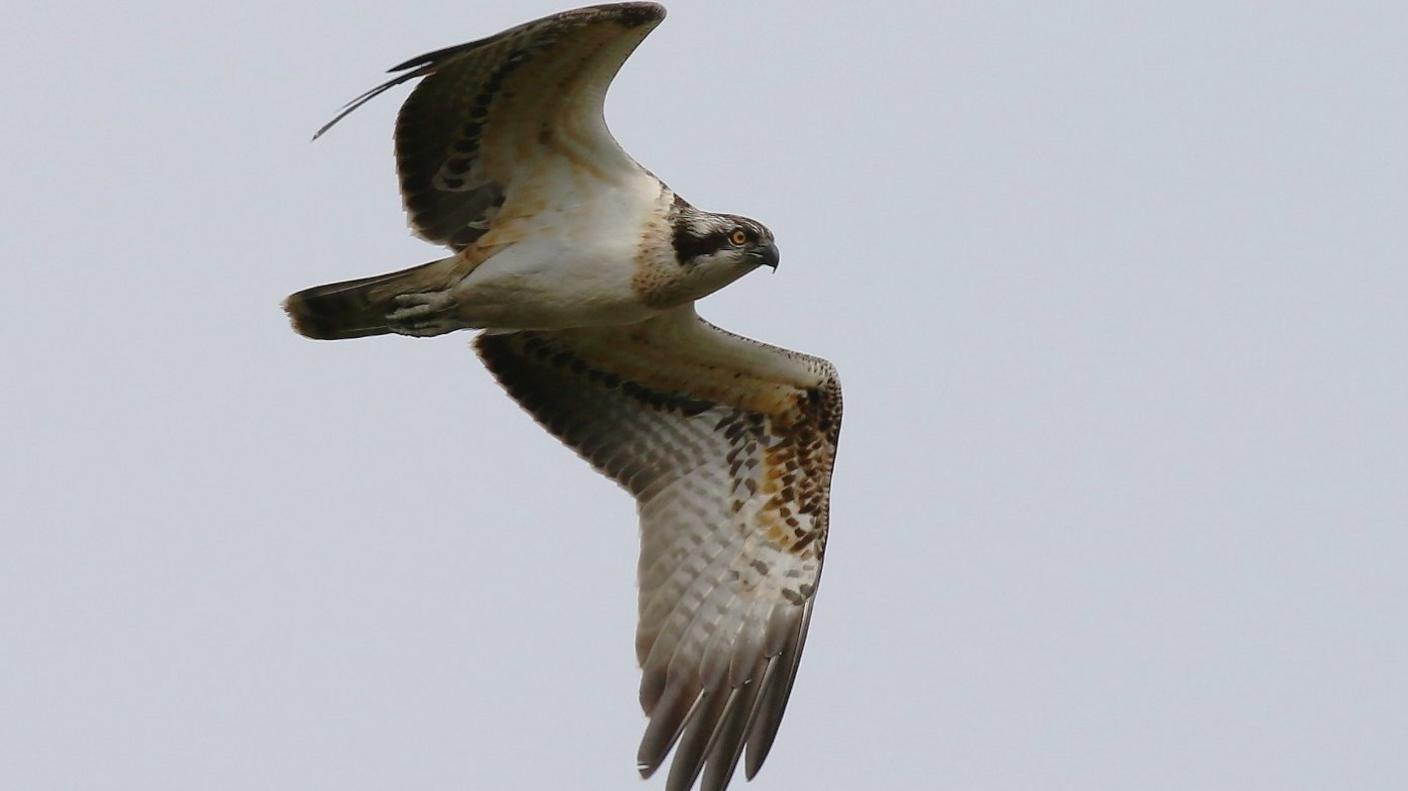Hopes for Poole Harbour osprey breeding project
- Published

The female (left) and male returned to Poole from North Africa
A project aimed at encouraging ospreys to breed on the Dorset coast is on the verge of success, conservationists have said.
A five-year reintroduction programme began in Poole Harbour in 2017 with the long-term aim of establishing a breeding population.
Birds of Poole Harbour said a male and female had returned safely on their migration from Africa and were nesting.
The group said the safe arrival of the pair was a "boost".
In a statement the charity said they had now settled on a nest platform at an undisclosed location in the area.
It said: "The pair, known as CJ7 and 022, first met last summer, although the male was too young to breed.
"However, they've now both retuned early enough meaning there's a good chance the pair will attempt to breed this summer, which will be a historic moment for Dorset."
Live webcams have been installed on several of the Osprey nests so schools and members of the public can observe the birds.
The fish-eating birds of prey historically bred across British Isles but populations drastically declined in the Middle Ages.

The birds of prey are annual visitors to Poole Harbour
In 2017 Birds of Poole Harbour and the Roy Dennis Wildlife Foundation began a five-year "translocation" scheme, which involved transferring six week-old chicks from sustainable populations in Scotland to Poole Harbour.
Live webcams, external have been installed on several of the Osprey nests.
The Roy Dennis Wildlife Foundation has also run a project to return white-tailed eagles to the Isle of Wight, several of which have also visited Poole Harbour.
However one of the sea eagles was found dead earlier this year on a north Dorset estate, with high levels of rat poison in its system.
Other successful osprey conservation programmes have run in Rutland and Kielder Forest in Northumberland.

Follow BBC South on Facebook, external, Twitter, external, or Instagram, external. Send your story ideas to south.newsonline@bbc.co.uk, external.
Related topics
- Published20 June 2017
